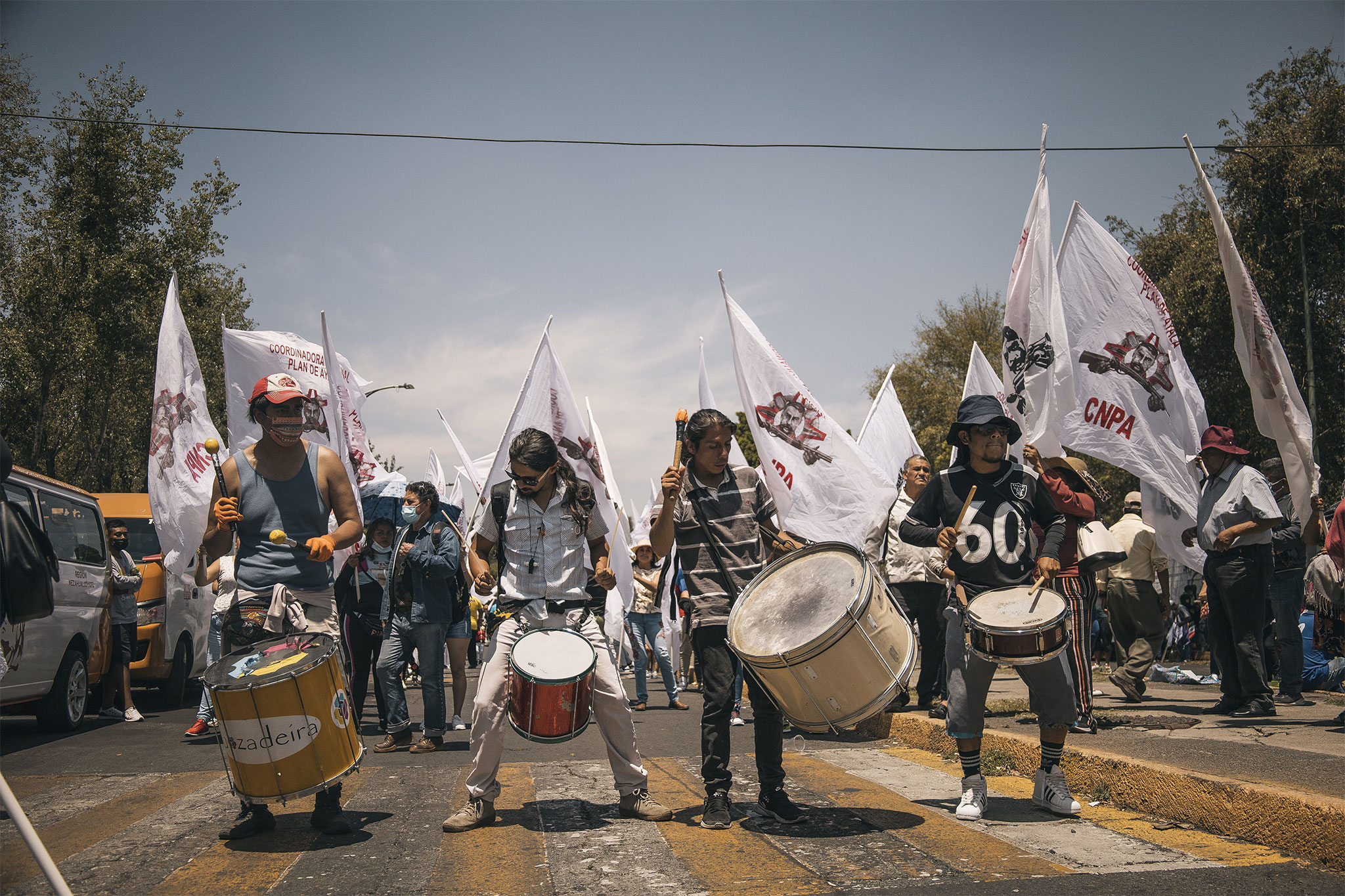The Second Floor & Its Pending Mission
This editorial by José Romero originally appeared in the October 22, 2025 edition of La Jornada, Mexico’s premier left wing daily newspaper. The views expressed in this article are the author’s own and do not necessarily reflect those of Mexico Solidarity Media, or the Mexico Solidarity Project.
During Andrés Manuel López Obrador’s administration, a true transformation took place. The Mexican political system was profoundly modified, and under the slogan “For the good of Mexico, the poor first,” minimum wages were raised, labor rights were strengthened, and a genuine attempt at social justice was undertaken.
For the first time in decades, the state once again looked to itself, not to the markets. Politically, the progress was decisive: the oligarchic regime inherited from neoliberalism was dismantled, and democratic legitimacy was rebuilt. This process culminated in the resounding victory of Morena and its allies in 2024, which gave rise to the current administration.
That victory marked a historic turning point. The Fourth Transformation had reestablished the authority of the state, the dignity of labour, and social hope. The country demonstrated that it was possible to govern with austerity, honesty, and a sense of community. But political power alone cannot transform a dependent economy. The current era demands something more difficult and profound: transforming legitimacy into development, social justice into productive sovereignty.

The central challenge is not attracting foreign investment, but rather reversing more than four decades of stagnation and dependence. Mexico needs a sovereign national financial system, capable of channeling domestic savings to the productive sector, industry, innovation, and small and medium-sized businesses. A Mexicanized banking system must regain its public function and become an engine of development, not an intermediary for global capital. Without credit control, there is no economic policy, and without economic policy, there is no sovereignty.
The country has large Mexican-owned conglomerates that, under a state strategy, could become national champions, but only if they operate under the firm leadership of the public authorities. It’s not about handing them the helm of development, but rather subordinating capital to national interest. These companies must function as true drivers of a broad network of small and medium-sized industries, promoting national content, domestic production, and technological autonomy.
The State must direct, regulate, and supervise with authority to prevent private interests from capturing public decisions or distorting national policies. Capital can be an ally of progress, but never its master. Therefore, a strong government is needed, with political legitimacy and technical capacity, capable of disciplining economic power and putting it at the service of the common good. Only in this way will the alliance between State and business be an instrument of sovereignty, and not a gateway back to the old tutelage of money over the nation.
The desire to please all sectors—business, financial, academic, & media—has opened cracks that foreign interests exploit.
The priority is not to manage stagnation, but to rebuild the national productive apparatus. Mexico requires a sustained industrial policy that articulates science, energy, and manufacturing, and an efficient and planning state capable of coordinating public and private investment toward a national purpose. Without state leadership, development is dispersed; without a state that commands, the economy fragments and sovereignty fades.
The educational and scientific crisis is part of the same structural problem. Mexico has an average of nine years of schooling, and international tests show alarming levels of functional illiteracy and low labour productivity. This is not a cultural issue, but a productive one: the country does not produce the technicians, engineers, or scientists it needs to sustain its own development.
In higher education, bureaucratic and academic mafias perpetuate a model of simulation and dependency. Without an educational and technological revolution oriented toward production, innovation, and work, Mexico will continue assembling without learning and consuming without creating.
The desire to please all sectors—business, financial, academic, and media—has opened cracks that foreign interests exploit. In the name of consensus and pragmatism, control of recovered strategic spaces is beginning to be ceded, and the project risks dissolving into directionless management, discourse without conflict, and change without power.
True transformations are not sustained by conciliation. They imply rupture, confrontation, and leadership. Breaking away from dependency, bureaucratic mediocrity, and the elites that parasitize the State is not a radical gesture, but a historical necessity. Every emancipation—from independence to the expropriation of oil—was also a battle against fear and complacency.
Time is running out. We cannot continue indefinitely without concrete decisions: the six-year term drags on, problems worsen, and opportunities dry up. Each aimless month reinforces inertia and erodes the historical sense of transformation. The challenge is not to retain power, but to use power to transform.
Hopefully, this government, born from an exceptional popular victory, will have the clarity and firmness necessary to do so. Because only then will the Fourth Transformation cease to be a promise and become a civilizing project of creation, productivity, and national sovereignty.
José Romero is Director of the Centro de Investigación y Docencia Económicas (CIDE). CIDE is a publicly-financed social sciences research center aiming to impact the country’s social, economic and political development.
-
Workers Party Claims Sheinbaum Electoral Reform Will Eliminate Party System
The socialist party’s leader recalled the democratic spaces that the left managed to conquer with the 1977 & 1996 reforms, a “fruit of countless struggles, repressions, imprisonments, disappearances and even armed uprisings.”
-
Anti-FIFA Challenge: Football Defends the Territory
Mexico City residents are organizing Anti-World Cup Days to protest water theft and gentrification that have accompanied preparations for the World Cup, put on by the corrupt, international criminal consortium known as FIFA.
-
Tridonex Strike in Matamoros to Start March 6th
1,300 workers are expected to strike, demanding the company fulfill its obligation to pay workers in full. Tridonex is owned by First Brands, the US autoparts corporation accused of massive fraud.




